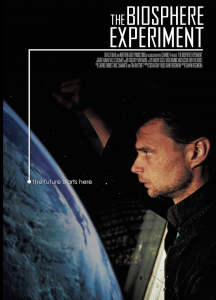Directed by Shawn Rosenheim
January 13th, 2018 at 8:00PM

Here we were, making big, pioneering discoveries about greenhouse gases, recycling, and energy, and the world wasn’t ready to hear it. Biosphere 2 was so far ahead of its time, that we couldn’t even get on most people’s radar screens. Now, maybe, that’s changing.
—Gaie Alling, Biospherian
On June 3, 2010, the Mars-500 experiment begins: two Russians, two Europeans, and one Chinese crew member enter an isolation chamber in Moscow for a 520-day flight simulation, designed to test the limits of human tolerance for interplanetary travel. Meanwhile, physicist Stephen Hawking predicts that man will have a colony on Mars by 2046. The wheelchair-bound author says that, due to diminishing resources, the risk of total annihilation of the human race is growing day by day.
July, 2010: In a joint paper, scientists from around the globe declare that acidification of the oceans is “the most pressing environmental threat” facing the planet, which could lead to the extinction of 500,000 fish species, and destruction of the world’s coral reefs.
April, 2010: The entertainment paper Variety declares that, for the seventh year straight, reality-based program will constitute “the lion’s share” of world television entertainment.
As radical and current as all this sounds, none of it, in fact, is new. All these events grew, in different ways, out of the Biosphere 2 experiment 25 years ago. The story of that experiment – the first time a crew was sealed inside an isolated environment as research for space travel, the first time scientists discovered the devastating environmental consequences of ocean acidification, and the first example of reality television, where the entire adventure was filmed by the participants – has never before been told. Now its time has arrived.